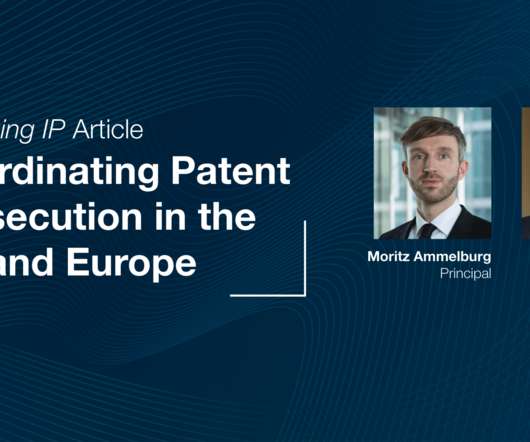Book Review: A Practitioner’s Guide to European Patent Law (with a discount code)
The IPKat
JANUARY 24, 2023
This Kat is delighted to review “ A Practitioner’s Guide to European Patent Law: For National Practice and the Unified Patent Court ” (Hart Publishing, 2022, 664 pp.). The book consists of seventeen chapters, mainly on substantive law, but it also addresses certain procedural matters and questions of international private law.
























Let's personalize your content